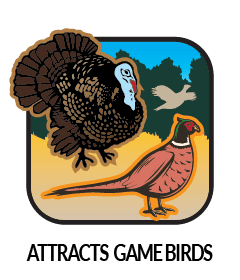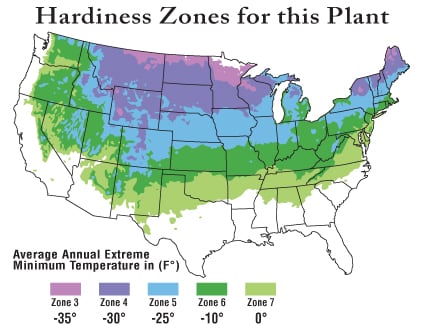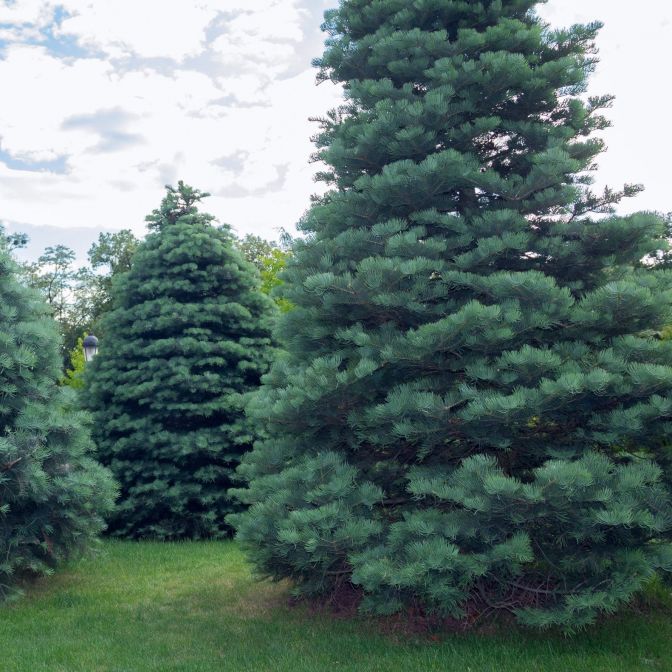Concolor Fir
Plant Type: Evergreen, bare-root
Zones: 3-7
Soil Type: Loamy & Sandy Soils
Site Selection: Full Sun, Partial Sun
Mature Height & Width: 30-50' Height and 15-25' Spread
Growth Rate: Slow/Moderate - 10-18" per year once established
Moisture Requirements: Average
Concolor Fir Plugs Also Available - CLICK HERE




Concolor Fir
Abies concolor
The Concolor Fir has been steadily gaining popularity as a Christmas tree in recent years. This conifer exhibits a blue-green color, with longer needles than most other Fir trees. The needles remain on the tree long after cutting. The needles have a pleasant scent, described as citrus or orange-like. Able to tolerate both the cold and the heat, this tree will grow in southern regions where others will not.
Sometimes known as the White Fir, this evergreen is widely used in the home landscape. Generally disease and pest resistant, this Fir tree makes a good alternative to other evergreens such as Colorado Blue Spruce, White Spruce and Black Hills Spruce. Buy Concolor Fir seedlings from our nursery today!
The sturdy branches of this tree add to its appeal as a commercially grown Christmas tree. Its dense form provides great cover for birds and small mammals. Cones are 3" to 6" in length and barrel shaped. The Concolor Fir will grow in average to moist but well drained soils. However, this tree exhibits a good degree of drought tolerance once established. Will not tolerate areas that are too wet. The White Fir will grow in partial sun, requiring a minimum of just 4 hours of direct sunlight each day.
Common Uses:
- An up and coming Christmas tree selection
- Evergreen - holds needles year round
- Used as part of a windbreak
- Good wildlife value for shelter in particular
- Ornamental in the home landscape
- Wood used for lumber and building furniture
Fun Fact: Since the wood of the Concolor Fir is mostly neutral in odor, its wood has been used historically to store butter.
The seed of the White Fir is eaten by squirrels and other small mammals. Game birds such as grouse will eat the needles and buds of this conifer. The dense habit of this evergreen makes good nesting cover for game birds and many song birds alike. The Concolor Fir also provides excellent winter roosting. Porcupines are fond of the Concolor Fir's bark and will consume it!






